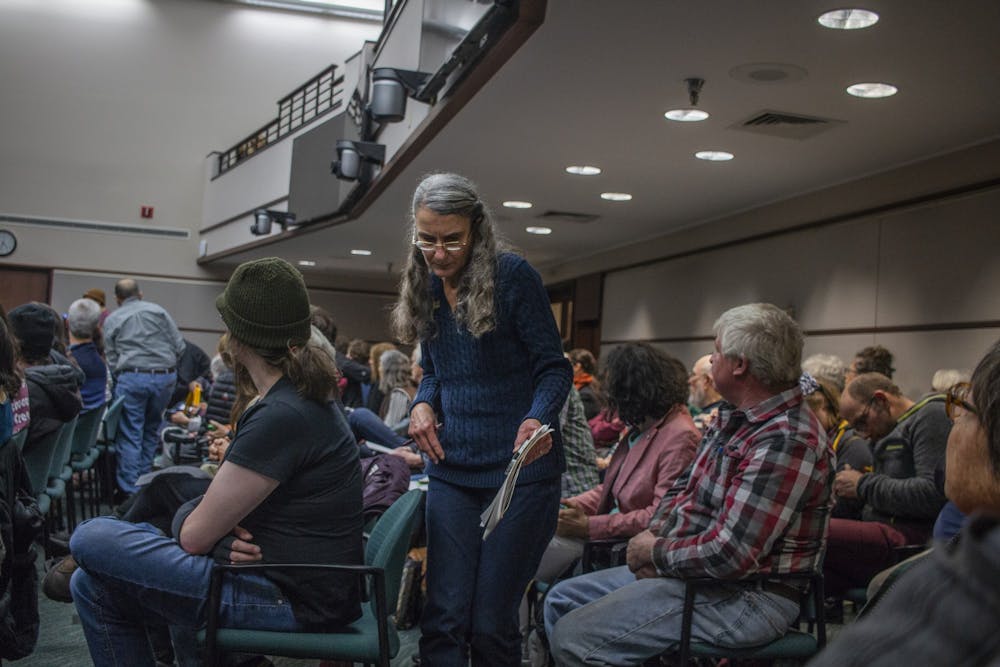The Bloomington Community Farmers’ Market will remain under city management through 2020 after a unanimous vote Thursday night by the Board of Park Commissioners.
“It is now clear to me that the community wants to see this market move on into the future,” board chair Les Coyne said.
The decision comes after the end of a tumultuous 2019 market season during which the community clashed over the presence of Schooner Creek Farm, whose owners were tied to a white nationalist group called the American Identity Movement, formerly known as Identity Evropa.
As the season drew to a close with no real solution in sight, questions arose about whether the market would be better run by a private entity instead of the city.
Park commissioner Lisa Thatcher read from a prepared statement at the meeting and said the public’s focus shifted throughout the course of the market’s season. While some people initially asked for solutions such as the removal of Schooner Creek Farm, she said removing protesters and maintaining public control of the market seemed to become bigger concerns as the months wore on.
“Everyone has emotions in this because we aren’t just talking about the market,” Thatcher said. “We are talking about Bloomington.”
Thatcher said voting to keep the market public was a vote of faith on her part, but she wants to see the city work hard to make positive changes and actively listen to people who have been trying to address the problems brought to the surface by the market.
“Our community was shocked because we had not been listening to our fellow citizens,” Thatcher said. “Why? Because of the privilege of it not having a direct and daily effect on us.”
After the meeting, Abby Ang of activist group No Space for Hate said she wanted the market to be privatized but wasn’t surprised by the way the vote turned out.
She said she doesn’t know if white supremacy or issues faced by marginalized communities will actually be addressed this year, and she remains frustrated that people think protesters at the market are a bigger problem than white supremacy.
“I wish I had more faith that they were going to make positive changes to welcome more minority vendors and minority community members,” Ang said.
City employees expressed concerns about how market privatization could create logistical concerns. They mentioned that there would have to be a new entity in charge of running the market, as well as possibly a new location.
Additionally, privatization could interfere with the smaller operations at the market, including programs created to address food insecurity in the community and other market initiatives.
“Making the market private doesn’t solve a problem — it creates several new ones, ones that would not be managed by the experienced people and the considerable resources available through the parks department,” park commissioner Kathleen Mills read from her statement.
After the vote, the board began talking about approving market rules and regulations for 2020, but because there were time constraints and disputes over some of the suggested changes, the board decided to table discussion until its Jan. 28 meeting.
Grassroots Conservatives leader Robert Hall said he hopes the city's rules will keep protesters in Info Alley, the market’s free speech area, to bring back peace.
“I hope they don’t back down,” Hall said. “There’s a lot of pressure on them.”
Vendor Susan Welsand, who is known as the Chile Woman, said she is concerned because of a proposal that would limit her and other vendors’ abilities to keep signs around their booths.
She said she used signs to protest Schooner Creek’s presence last season and feels taking that option away would violate her First Amendment rights.
Welsand said no matter what the city decides, she doesn’t know what the future of the market will look like.
“Only the 2020 season is going to answer that question,” Welsand said.




